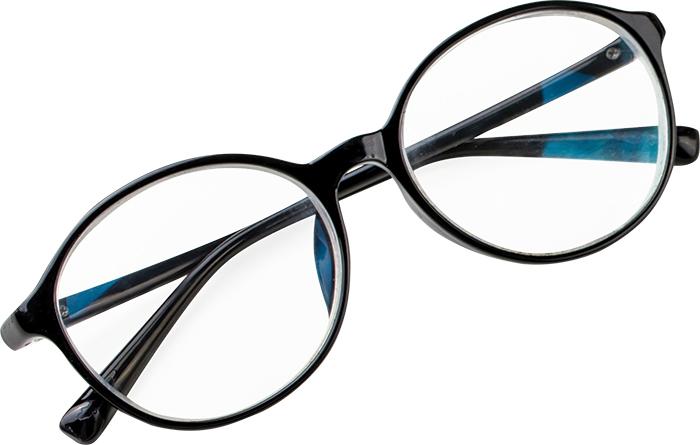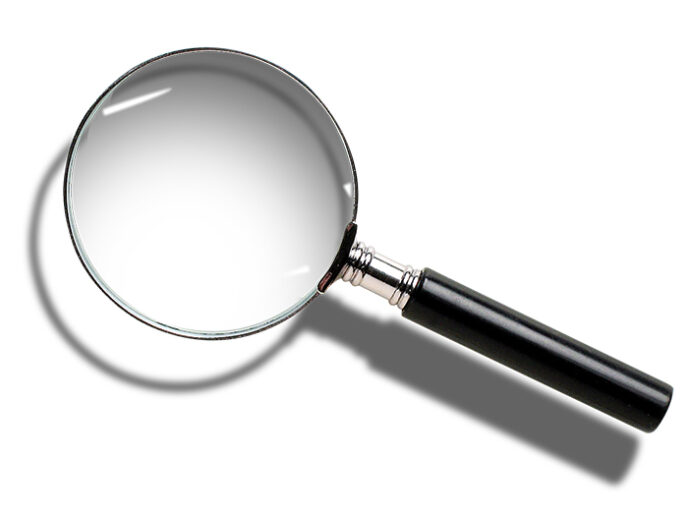As we age, the journey from reading with a flashlight under the covers to holding menus at arm’s length to embracing bifocals – or even trifocals – suggests that changes in vision are an inevitable aspect of growing older. That was the journey Maura had experienced in her 68 years. She has worn glasses for the last 20 years or so, but before reaching her 40s never thought she would have vision problems.

“My vision was better than 20/20,” Maura explained. “I could read for hours, do my painting and even see the difference between shampoo and conditioner bottles in the shower. But I can’t anymore.”
A few months ago, Maura began noticing changes in her vision. While driving, she would look at the radio but could only see the edges of it. While reading, some of the words on the pages would disappear at times. “I’d look at the clock but couldn’t see the hands to read what time it was.”
Concerned about her eyesight, Maura sought help from Hamilton Community Health Network’s Dr. Larry Johnson, MD. Dr. Johnson has practiced ophthalmology for many years and is an expert in the field of eye disease.
Maura was relieved that her appointment with Dr. Johnson wasn’t a consultation about surgery; instead, he dilated Maura’s eyes and had her look at an Amsler Grid – a testing tool that helps to detect any blurry, distorted or blank spots in her field of vision. Additionally, Dr. Johnson used special lenses or an optical coherence tomography (OCT) imaging machine to assess changes in the retina and macula of Maura’s eyes.
After completing the exam, Dr. Johnson knew that Maura was indeed having trouble with her vision. In fact, he told her she has age-related macular degeneration (AMD). With macular degeneration you cannot see fine details, whether you are looking at something near or far; but your peripheral (side) vision will still be normal.
As Dr. Johnson was explaining his findings to Maura, she says her “heart sank at the diagnosis.” “I had heard of macular degeneration before, but I never anticipated it affecting me.” A macular degeneration diagnosis can seem overwhelming – after all, most people are frightened when it comes to the idea of losing their vision. But the disease progresses slowly. Also keep in mind that sight loss happens gradually and may not be immediately noticeable. People with intermediate disease may struggle with low-contrast sensitivity and need task lighting. Those with advanced disease can experience challenges with depth perception or have Swiss cheese-like vision.
Age-related Macular degeneration is very common and is a leading cause of vision loss in people 50 years or older. In fact, you are more likely to develop macular degeneration if you:
- eat a diet high in saturated fat, such as meat, butter and cheese
- are overweight
- smoke
- have hypertension/high blood pressure
- have a family history of macular degeneration
- have heart disease
- have high cholesterol
- are Caucasian
“There is not a cure for AMD, but there are ways to treat it,” explained Dr. Johnson. “Depending on your situation, it can be treated with vitamins/dietary supplements, a healthy diet, and regular eye exams.”

Dr. Johnson encouraged Maura to eat plenty of dark leafy greens, yellow fruits and vegetables, fish, and a balanced, nutrient-rich diet as these foods have been shown to be beneficial for people with macular degeneration. He also emphasized the importance of maintaining a positive outlook and adopting a healthy lifestyle to support her eye health.
MACULAR DEGENERATION SIGNS TO BE AWARE OF:
- Straight lines that appear wavy or distorted
- Difficulty with reading small print, recognizing faces or threading a needle
- Dark or empty areas in your central vision
- Colors may appear less vivid or may seem faded.
- Difficulty adjusting to low light levels
Early detection can help slow the progression of macular degeneration and preserve vision for as long as possible. If you are experiencing any vision problems, seek prompt evaluation by an eye care professional.

Need an eye exam? Call 810.406.4246 and see Dr. Johnson today.














